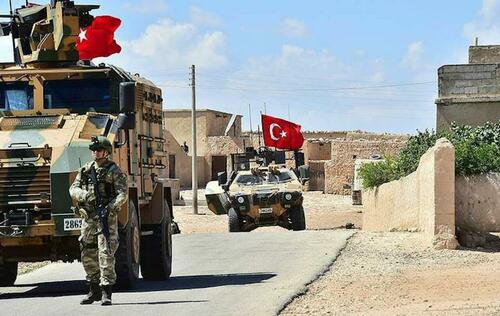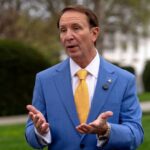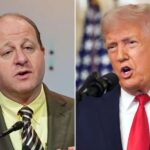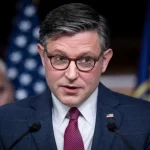
The US government is scrambling to address a Turkish-backed offensive targeting the Syrian Democratic Forces (SDF) in Syria following the fall of Bashar al-Assad’s regime.
Turkish officials have announced that Secretary of State Antony Blinken will visit Ankara on Friday. A statement from the State Department indicated that Blinken will discuss the importance of ensuring that the transition process and the formation of a new government in Syria respect the rights of minorities and prevent Syria from being used as a base for terrorism.

Washington was reportedly caught off guard by the rapid overthrow of Assad by Hay’at Tahrir al-Sham (HTS)-aligned forces, which occurred in just 11 days. Reports suggest that US officials had been attempting to negotiate a deal with Assad that would have normalized his position in exchange for severing ties with Hezbollah and Iran.
The US has expressed concern over Turkish-backed Syrian National Army (SNA) operations targeting the SDF, a US partner force.
Buffer zone
These operations have resulted in the seizure of areas including Tal Rifaat and Manbij, which had been under SDF control earlier this month. By securing Tal Rifaat and Manbij, Turkey has solidified its control over key areas west of the Euphrates, creating a buffer zone along its borders.
Following the capture of Manbij, the SNA crossed the Euphrates River and seized the Tomb of Suleyman Shah, a site of significant historical and cultural importance linked to the Ottoman Empire. The move triggered an outrcy from the SDF, raising concerns that the front would move towards the heavily populated city of Kobane.
Turkey has long regarded the SDF as an affiliate of the Kurdistan Workers’ Party (PKK), despite its rebranding and its partnership with the US in the fight against the Islamic State (IS).
A Turkish official told Middle East Eye that Blinken was probably coming to ensure that the SNA wouldn't progress towards Kobane or Ayn al Arab, as known in Arabic. "Turkey will maintain military pressure because some officials in the US are facilitating talks between the SDF and Israel in a last-minute attempt to secure the group's future," a person familiar with the issue told MEE.
Raised eyebrows
Israeli public broadcaster Kann last week revealed that the first official talks between Tel Aviv and the SDF leadership took place earlier this month. This development has raised eyebrows, as senior Israeli officials have begun adopting rhetoric supportive of the Syrian Kurdish group.
Meanwhile, US Central Command (Centcom) Commander General Michael Kurilla visited northeastern Syria on Tuesday, reiterating US support for the SDF as an anti-IS partner force.
Murat Yesiltas, a senior expert at the Ankara-based think tank Seta, argues that Ankara aims to strengthen its position during Donald Trump’s term by undermining the SDF as much as possible. Trump had repeatedly voiced his intention to withdraw US forces from Syria during his first term, but pressure from the Pentagon and a US media campaign limited his efforts, resulting in only a partial pullback in 2019.
Yesiltas told MEE he does not believe Ankara will escalate the situation by launching a major operation in areas such as Kobane or Qamishli, which are heavily populated with civilians. “However, there is a sense that the Americans are seeking a grand bargain to resolve the SDF issue,” Yesiltas said. “But Blinken and others only have one month left in office, so any deal must be negotiated with the incoming Trump administration. The new Syria increasingly appears united, and autonomy for a few million people in the country seems unlikely.”
A separate source familiar with the situation noted that the threat posed by SDF-controlled areas is higher than ever, despite the loss of Manbij and Tal Rifaat.
"The Syrian regime previously maintained a civil and military presence in areas like Hasakah and Qamishli, but they are no longer there. This absence provides the SDF with an opportunity to resemble a state more than ever before," the source said.
Today a lot of shelling and bombing by #SNA and #Turkey
— YPG & YPJ International (@YpgInt) December 11, 2024
◾️2 villages close to Til Temir
◾️vicinity and city of Raqqa
◾️vehicles and mosque close to Qere Qozaq
◾️3 villages close to #Kobane
◾️Lafarge company south of Kobane
have been hit, probably more (not yet confirmed). pic.twitter.com/l5tOQW4UaH
Recent footage from last week shows that many residents in predominantly Arab areas such as Raqqa and Deir ez-Zor are growing intolerant of SDF rule, particularly now that the threat of Assad’s return has diminished.
Internal strife
Many in Ankara anticipate that the SDF will continue to face internal strife in Arab-majority areas. Yesiltas also highlighted immediate issues that Turkey wants to discuss with Blinken, including the transition process in Damascus.
"Turkey could play a key role in assisting the international community with the removal of Syria’s remaining chemical weapons," Yesiltas added. "Although Israel has reportedly targeted some research facilities and sites, these types of attacks alone are not sufficient to fully eliminate them."
The State Department confirmed that Blinken will also address efforts to ensure that Syria’s chemical weapons stockpiles are secured and safely destroyed.
The US government is scrambling to address a Turkish-backed offensive targeting the Syrian Democratic Forces (SDF) in Syria following the fall of Bashar al-Assad’s regime.
Turkish officials have announced that Secretary of State Antony Blinken will visit Ankara on Friday. A statement from the State Department indicated that Blinken will discuss the importance of ensuring that the transition process and the formation of a new government in Syria respect the rights of minorities and prevent Syria from being used as a base for terrorism.

Washington was reportedly caught off guard by the rapid overthrow of Assad by Hay’at Tahrir al-Sham (HTS)-aligned forces, which occurred in just 11 days. Reports suggest that US officials had been attempting to negotiate a deal with Assad that would have normalized his position in exchange for severing ties with Hezbollah and Iran.
The US has expressed concern over Turkish-backed Syrian National Army (SNA) operations targeting the SDF, a US partner force.
Buffer zone
These operations have resulted in the seizure of areas including Tal Rifaat and Manbij, which had been under SDF control earlier this month. By securing Tal Rifaat and Manbij, Turkey has solidified its control over key areas west of the Euphrates, creating a buffer zone along its borders.
Following the capture of Manbij, the SNA crossed the Euphrates River and seized the Tomb of Suleyman Shah, a site of significant historical and cultural importance linked to the Ottoman Empire. The move triggered an outrcy from the SDF, raising concerns that the front would move towards the heavily populated city of Kobane.
Turkey has long regarded the SDF as an affiliate of the Kurdistan Workers’ Party (PKK), despite its rebranding and its partnership with the US in the fight against the Islamic State (IS).
A Turkish official told Middle East Eye that Blinken was probably coming to ensure that the SNA wouldn’t progress towards Kobane or Ayn al Arab, as known in Arabic. “Turkey will maintain military pressure because some officials in the US are facilitating talks between the SDF and Israel in a last-minute attempt to secure the group’s future,” a person familiar with the issue told MEE.
Raised eyebrows
Israeli public broadcaster Kann last week revealed that the first official talks between Tel Aviv and the SDF leadership took place earlier this month. This development has raised eyebrows, as senior Israeli officials have begun adopting rhetoric supportive of the Syrian Kurdish group.
Meanwhile, US Central Command (Centcom) Commander General Michael Kurilla visited northeastern Syria on Tuesday, reiterating US support for the SDF as an anti-IS partner force.
Murat Yesiltas, a senior expert at the Ankara-based think tank Seta, argues that Ankara aims to strengthen its position during Donald Trump’s term by undermining the SDF as much as possible. Trump had repeatedly voiced his intention to withdraw US forces from Syria during his first term, but pressure from the Pentagon and a US media campaign limited his efforts, resulting in only a partial pullback in 2019.
Yesiltas told MEE he does not believe Ankara will escalate the situation by launching a major operation in areas such as Kobane or Qamishli, which are heavily populated with civilians. “However, there is a sense that the Americans are seeking a grand bargain to resolve the SDF issue,” Yesiltas said. “But Blinken and others only have one month left in office, so any deal must be negotiated with the incoming Trump administration. The new Syria increasingly appears united, and autonomy for a few million people in the country seems unlikely.”
A separate source familiar with the situation noted that the threat posed by SDF-controlled areas is higher than ever, despite the loss of Manbij and Tal Rifaat.
“The Syrian regime previously maintained a civil and military presence in areas like Hasakah and Qamishli, but they are no longer there. This absence provides the SDF with an opportunity to resemble a state more than ever before,” the source said.
Today a lot of shelling and bombing by #SNA and #Turkey
◾️2 villages close to Til Temir
◾️vicinity and city of Raqqa
◾️vehicles and mosque close to Qere Qozaq
◾️3 villages close to #Kobane
◾️Lafarge company south of Kobane
have been hit, probably more (not yet confirmed). pic.twitter.com/l5tOQW4UaH— YPG & YPJ International (@YpgInt) December 11, 2024
Recent footage from last week shows that many residents in predominantly Arab areas such as Raqqa and Deir ez-Zor are growing intolerant of SDF rule, particularly now that the threat of Assad’s return has diminished.
Internal strife
Many in Ankara anticipate that the SDF will continue to face internal strife in Arab-majority areas. Yesiltas also highlighted immediate issues that Turkey wants to discuss with Blinken, including the transition process in Damascus.
“Turkey could play a key role in assisting the international community with the removal of Syria’s remaining chemical weapons,” Yesiltas added. “Although Israel has reportedly targeted some research facilities and sites, these types of attacks alone are not sufficient to fully eliminate them.”
The State Department confirmed that Blinken will also address efforts to ensure that Syria’s chemical weapons stockpiles are secured and safely destroyed.
Loading…






